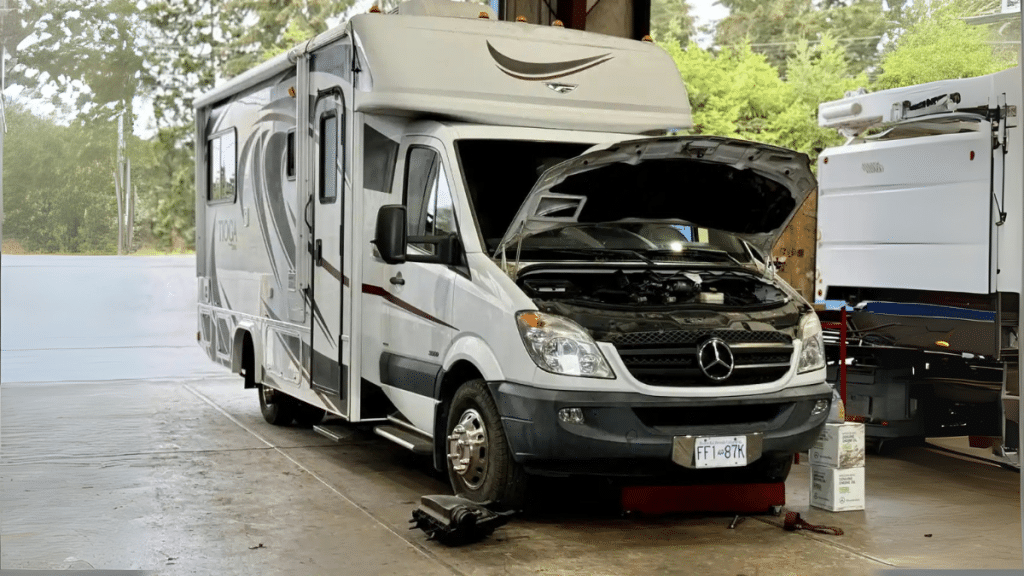Starting Your Journey with an RV Inspection
Roadside breakdowns are not inevitable. Prevention starts with an unflinching RV inspection before you hit the road. Fluids, tires, batteries, lights, and safety gear demand your attention—not a quick glance, a deliberate check. Ignore them, and you’re inviting expensive surprises. Log everything in a maintenance journal. It’s your RV’s footprint and your safety insurance.
Maximizing Engine Life in Your Recreational Vehicle
Neglect is the silent killer of RV engines. Sure, you can delay an oil change, but don’t be surprised when the performance tanks. Service intervals for oil, filters, and belts aren’t “recommendations”; they’re lifelines. When you hear odd noises, see leaks, or feel the power diminishing, act fast. Quality parts trump cheap substitutes—choose wisely. Trustworthy suppliers are your lifeblood here.
Tire and Suspension Maintenance for Long-Haul RV Performance
Your tires and suspension hold your RV’s fate in their grip. Keeping tire pressure optimal and tread depth in check is a direct route to saving fuel and staying alive. Brake checks, shock absorber inspections, and alignment fixes keep your ride steady—even on unpredictable terrain. Be ruthless in your walk-around inspections; don’t let minor issues grow into major financial headaches.
Preserving Interior Comfort and Safety in Your Recreational Vehicle
Your RV interior isn’t just for lounging—it’s your traveling home. Keep HVAC systems humming, seals tight, and propane leaks nonexistent. Moisture is your true enemy; eradicate it before mold moves in. Refresh upholstery with purpose, not an afterthought. Adopt non-toxic cleaners and products designed to restore seals without turning them brittle.
Electrical and Plumbing Checkups for Reliable RV Operation
Your RV’s electrical and plumbing systems aren’t forgiving of neglect. Test house batteries regularly, confirm inverter operations, and never assume circuit breakers are fine. Maintenance for water pumps, tank sanitation, and leak prevention should be meticulous. Calibrate gauges. Label everything. Make your RV systems intuitive not just for experts but for anyone stepping inside.
Seasonal RV Upkeep: Storage, Winterizing and Reactivation
If winterizing feels optional, prepare for costly regrets. Antifreeze, drained lines, and a high-quality cover aren’t extra steps—they’re mandatory. Summer demands its own prep: roof inspections, UV protectants, ventilation. And when spring reawakens your RV from storage, follow a reactivation checklist to sidestep the chaos of dead batteries or cracked fittings.
Spotting Complex Needs: When to Seek Recreational Vehicle Repair
Some RV issues are out of your league. Frame damage, advanced electrical failures, and significant plumbing debacles scream “professional intervention.” For trusted assistance, look no further than RV Repair St George. Ask sharp questions about the shop’s expertise. Bring your maintenance logs and warranty documents to avoid unnecessary guesswork.
Balancing DIY RV Maintenance with Professional Service Costs
DIY maintenance isn’t always cheaper, but it often gives you control. Simple tasks like filter swaps or tire checks will save you. But for more specialized fixes, professional services justify their price tags. Bulk-buying supplies and hitting multi-task appointments keep costs manageable. Build relationships with local technicians, and use seasonal promos to your advantage.
Proactive Routines for Ongoing RV Reliability
Skip the reactive mindset. Meticulously plan daily, monthly, and annual checkups that catch problems before they spiral out of control. Whether you prefer mobile apps or old-school spreadsheets, stay organized. Owner communities aren’t just chatter—they’re goldmines for recall alerts, service bulletins, and insider hacks you won’t find elsewhere.
Continuous RV Care for Limitless Exploration
Your RV’s reliability is a reflection of your discipline. Expect the best from it only when you give it your best care. Maintenance isn’t a chore—it’s an invitation to uninterrupted adventures. Bookmark your checklist. Share your tips. But most importantly, inspect your RV with the same rigor and confidence you bring to the open road.
